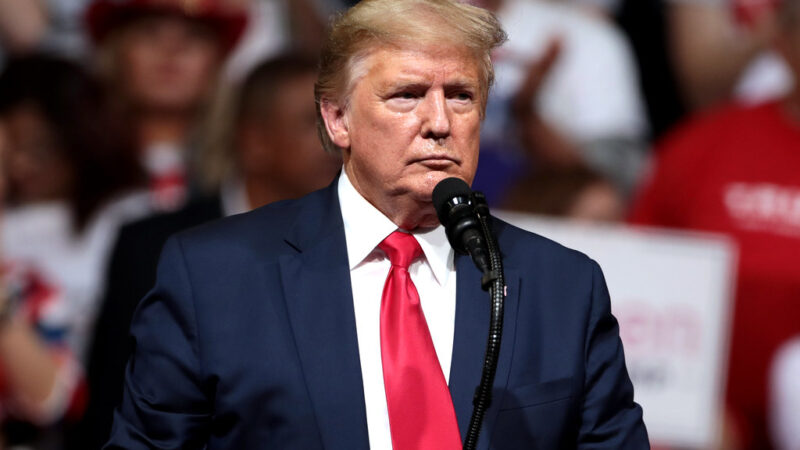The United States (U.S.) elections have been the centerstage of attention for the global community. The reemergence of Donald Trump to the highest position in the U.S. has been riddled with excitement, speculations and celebrations. And the speculations don’t seem to cease anytime soon. Besides all the policy changes expected from Trump after he assumes power in January 2025, Artificial Intelligence (AI) happens to be one of the landscapes that will be heavily influenced by the decisions Trump takes during his upcoming presidential term.
Though Trump has himself been a subject of deepfakes, disinformation and debates on AI, yet he did not say much about AI during his campaigns. Experts opine that Trump may let his hand loose on AI going further. His opinions on the AI advancements and the potential it holds for scientific and economic transformation do not bode quite well with the ethicists and policymakers. AI safety sector is expected to suffer a setback in the reign of Trump.
How Trump looks at AI?
Just this year, in 2024, Trump had a podcast interview with Logan Paul and referred to superintelligence as super-duper-AI. Despite the fears he expressed for deepfakes – a thing that could have impacted his political campaign – and called them alarming and disconcerting, Trump voiced his delight for large language models that helped him craft amazing speeches.
Trump is primarily pro-industry and has always advocated for greater liberties to be granted to the industries for accelerating innovation.
During the interview with Logan Paul, Trump also showed his inclination for using AI as a tool to gain an edge over China – a country that he has been viewing as a threat since long. The podcast showed him clearly stating “we have to take the lead over China” when asked about his views on AI.
Undoing Biden’s policies
AI experts speculate that Trump will lean away from regulations to foster unbridled innovation by companies as opposed to a contrary approach of prioritizing safety-focused AI growth. This means that Trump’s administration may eschew new technology-related regulations and undo a few regulations that currently exist. Trump has already stated that he looks forward to repealing the 2023 “Executive Order on the Safe, Secure and Trustworthy Development and Use of AI” by the current U.S. President Joe Biden that had proposed a framework for mitigating the risks of AI technology without impacting competition, innovation and use of AI for public services. Though this Executive Order was one of the firmest steps taken by the U.S. government so far on AI, Trump had openly pledged during his campaign trail to dispose of this order. The Republican Party platform further reaffirmed his position by claiming the Executive Order as a hindrance to AI innovation and a medium to impose radical leftwing ideas. This also leaves a sword hanging over the U.S. Artificial Intelligence Safety institute (AISI) that was formed as part of Biden’s Executive Order.
Biden’s Executive Order stressed on the need for AI models trained on human-derived data to not produce discriminatory results, the Republican party’s approach is to prioritize free speech and human flourishing in AI development.
While it is okay to emphasize on free speech, removing regulations around training of AI systems using human-derived data is a big blow to the safety of people globally. What’s surprising is that some of the allies of Trump have supposedly drafted their own executive order to replace that of Biden. Those executive order drafts advocate for projects on AI-powered military technology and industry-led agencies that can assess AI models originating within and outside the U.S. Though Trump has not said anything in support or opposition of this draft publicly, yet it shows the route that the Republican party intends to take on AI regulation. And since executive orders can be revoked anytime by the president, experts believe that Trump may repeal Biden’s orders sooner or later once he enters the office.
Musk has his role to play
Elon Musk – who had been a strong supporter of Donald Trump during the election campaigns – is also heading a new task force with former Republican Vivek Ramaswamy. The task force, named Department of Government Efficiency (DOGE), aims at restructuring federal agencies, cut excess regulations and reduce wasteful expenditures. Though senators are trying to protect the AISI with new legislation, yet the influence of Musk on the industry is very difficult to mitigate. He has been vociferous about the leaning that OpenAI apparently has towards the left, despite having been a cofounder of OpenAI with Sam Altman. He has even founded a new AI startup named “xAI” that has some improvements over ChatGPT. However, there is a conundrum here as well.
Elon Musk has also been a proponent of establishing a regulatory body that can put guardrails on developers and he had even backed an AI safety bill in California that later got vetoed.
The rest of Trump’s brigade is divided as well. For example, J.D. Vance – Trump’s Vice President – is so much against AI regulations that he has called them a plot to entrench the incumbent AI mammoths and prevent new entities from entering into the AI market. A technology investor, named Marc Andreessen, has pumped millions of dollars into Trump’s campaigns and is aggressively against having regulations in the AI space. On the contrary, Vivek Ramaswamy from Trump’s political party has voiced the need for holding companies liable if their AI products cause harm to humanity. Senator Ted Cruz has also introduced a legislation against revenge porn, including ban on AI-generated videos and images. Clearly, Trump’s team is divided on how AI must be regulated and permitted for innovation.
Spotlight on CHIPS Act
Biden’s administration had signed the CHIPS and Science Act in 2022 to strengthen the role of U.S. in the development of AI chips that hold the key for AI advancement. Under this act, billions of dollars had been allocated to promote semiconductor manufacturing, research and development. Even the semiconductor behemoth, Taiwan Semiconductor Manufacturing Corporation (TSMC) was allowed to setup manufacturing facilities in Arizona.
Trump had been vocal against the CHIPS Act stating that the Act allowed foreign companies to borrow money on American soil, instead of that money going to American entities. Several experts speculate that the CHIPS Act may be repealed soon.
However, another set of experts believe that Trump may not be in a position to repeal the Act because it enjoys strong bipartisan support and several states that voted for Trump are earmarked to receive subsidies using which TSMC is expected to commence production in the manufacturing facilities in 2025. Furthermore, even if the AI chips from Taiwan are banned or are put under high import tariffs, the black market of AI chips will get a boost. Not to forget that companies may simply rely on cloud computing whereby they may get access to AI chips remotely across international borders. Simply putting Taiwan off the stage of collaboration won’t be a sustainable strategy.
Moreover, keeping Taiwan happy is a crucial cog in the wheel of competition against China. Therefore, the CHIPS Act may be here to stay.
Will AI laws grow softer?
The new administration under Trump, starting January 2025, may not be in a position to drastically shift the approach towards AI. What we can expect is the administration directing the Federal Trade Commission (FTC), Department of Commerce and other agencies to adopt a softer approach on AI regulation, which may soften the voluntary safety and testing commitments that Biden had secured from the leading AI companies of the U.S. in 2023.
Antitrust actions against the leading AI companies may reduce, while the interventionist approach of FTC may be curtailed. Another development expected under Trump’s regime is the emergence of state-level laws in the already fragmented U.S. AI regulation ecosystem.
Several states, such as California, Utah and Colorado, have enacted their own state-level AI laws in the wake of inadequate regulation at the federal level.
This does not bode well for the corporate sector, as they will have a tough time complying with different laws of each state, leading to higher costs of compliance in the patchwork of regulations. Trump’s administration will have to streamline this hodgepodge of AI regulations.
What experts are also expecting is a softer control of Environmental Protection Agency (EPA) on the vast amounts of energy consumed by the data centres. Since Trump said on Truth Social that former New York representative Lee Zeldin has pledged to help unleash U.S. energy dominance and make America the AI capital globally while maintaining highest environmental standards, people have been speculating that EPA’s control over the AI machinery may be softened.
China’s competitiveness may deprioritize regulations
Trump views China as a major adversary in the cyberspace realm too. Researchers in China have used Meta’s Llama models to build potential military applications, while in the U.S., it has been used by enterprises only for customization of the off-the-shelf models. The open-source AI movement of U.S. has helped China immensely which Trump has taken note of. Therefore, limiting innovation by prioritizing the ethical use of AI – which includes non-usage for military applications – may not be on top of Trump’s mind as he prepares to unleash his entire AI arsenal to beat China in its own game.
What to expect from Trump Tomorrow?
Speculations abound and will continue to linger until Trump assumes charge as the President of the U.S. in 2025. There will be policy shifts positively, some of which will directly or indirectly affect the AI landscape. However, one can be sure – if Trump’s statements so far are sufficient indicators – that regulation for AI safety may be relegated to backseat, while competition against China and the thirst for global AI dominance will witness prioritization.











